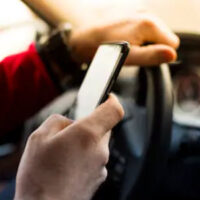Legal Options in Distracted Driving Claims

Mostly because of the rise of Uber, Lyft, and other ridesharing companies, the number of distracted driving accidents has increased significantly in recent years. Most people multitask their way through their days. So, they assume they can do the same thing behind the wheel. But there’s a big difference between multitasking during a Zoom meeting and multitasking behind the wheel of a large, moving vehicle.
Because of the force involved in these collisions, most distracted driving victims sustain serious injuries. As a result, a Tampa personal injury attorney is usually able to obtain substantial compensation in these cases. This compensation usually includes money for economic damages, such as medical bills, and noneconomic damages, such as pain and suffering.
Distraction and Negligence Per Se
Florida lawmakers recently toughened the Sunshine State’s cell phone ban on drivers. Yet it is still one of the weakest such laws in the country. It does not cover all, or even most of, the device distraction situations in Tampa.
Hand-held cell phones are the most visible kind of distracted driving, mostly because these gadgets combine all three forms of distracted driving, which are:
- Manual (hand off the wheel),
- Visual (eyes off the road), and
- Cognitive (mind off driving).
Florida’s cell phone law prohibits drivers from using a hand-held device to send or view text-based communications while they are driving.
If emergency responders cite drivers for 316.305 violations, they are presumptively negligent, under the state’s negligence per se rule. Additional evidence of negligence, such as erratic driving prior to the crash, but be necessary to obtain maximum compensation.
Distraction and Ordinary Negligence
In other device and non-device distraction cases, the ordinary negligence doctrine is available. Essentially, negligence is a lack of care. Most Florida noncommercial drivers have a duty of reasonable care. They must drive defensively and avoid accidents when possible. If the driver’s conduct fell below that standard, the driver is legally responsible for any resulting injuries.
The ordinary negligence principle applies to divide distraction not covered by the cell phone law. That includes using a hand-held gadget to surf the web, watch video, or do any of the other zillion things that today’s smartphones can do.
This principle also applies to hands-free devices. Contrary to popular myth, hands free is not risk free. These gadgets are cognitively and visually distracting. Additionally, they give many drivers a false sense of security. Usage logs are typically the best evidence of device distraction.
The ordinary negligence rule also applies to all forms of non-device distraction, such as drinking or eating while driving. Most jurors would not consider something like adjusting the air conditioner while driving to be a breach of duty. Prolonged distraction, however, is another matter. Evidence on this point includes erratic driving prior to the crash and the tortfeasor’s statements about distracted driving behavior.
In all these situations, victim/plaintiffs must establish negligence by a preponderance of the evidence, or more likely than not.
Contact an Experienced Attorney
Distracted driving crash victims usually have legal options. For a free consultation with an experienced personal injury attorney in Tampa, contact Mark H. Wright, PLLC. We routinely handle matters in Hillsborough County and nearby jurisdictions.
Resource:
research.chicagobooth.edu/-/media/research/stigler/pdfs/workingpapers/27thecostofconvenience.pdf?la=en&hash=A15B1513F98D7A17B9E37F78DD2EBDC4C6338BFA
